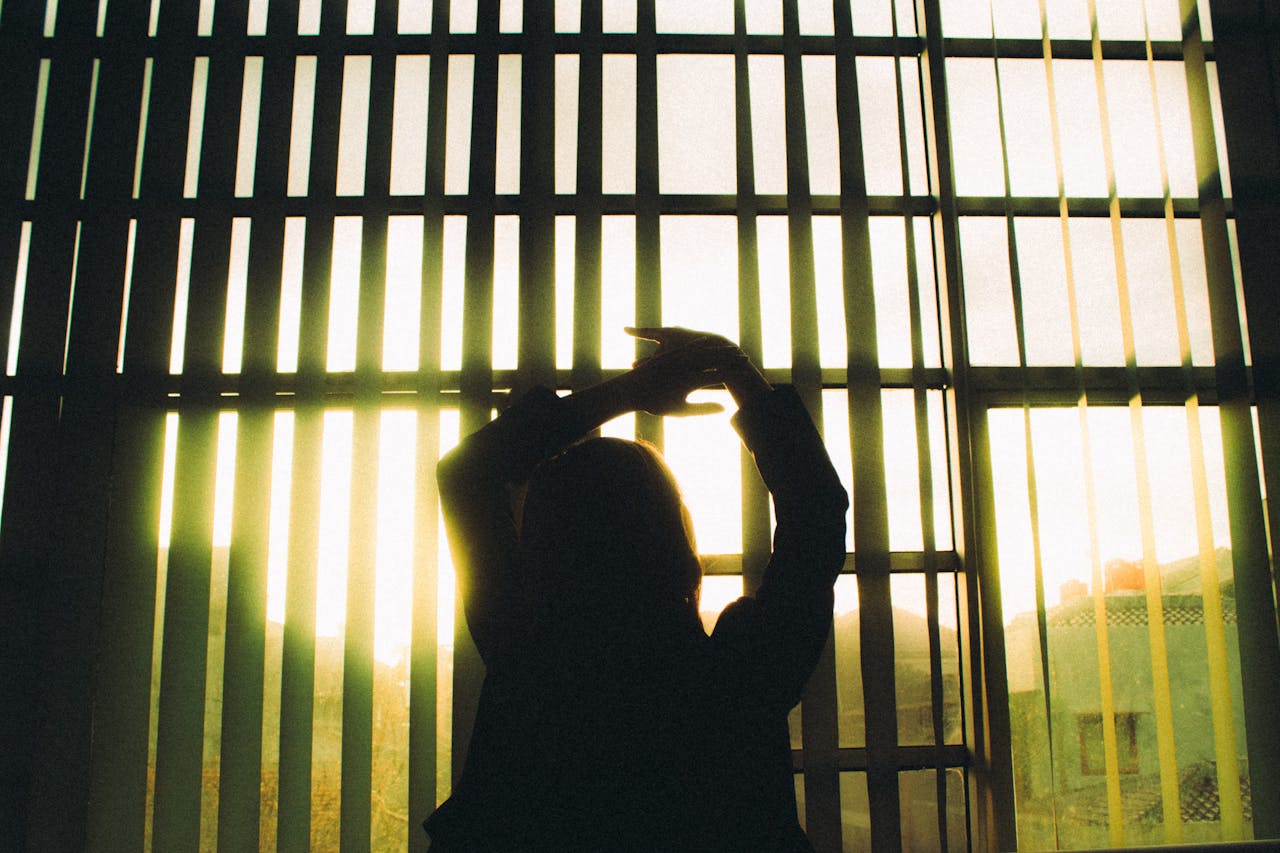Creating customized recovery plans for sustainable addiction wellness
Developing a personalized recovery plan is just one step on the road to long-term wellness.
Are you looking to get clean from an addiction?
OK, stop the clock for just one minute and read below.
This is the key to long-term, sustainable addiction recovery.
Yes, that's what's written there.
Every year, we spend trillions of dollars on addiction but still less than 10% of the 48.5 million people aged 12 or older in America who had a substance use disorder within the last year receive treatment tailored to their needs.
But...
Most treatment facilities are still operating within a system of "standardized recovery." Everyone comes in, goes through the same program and makes exactly the same steps towards recovery. Just like using one simple diet to treat 5 different diseases.
But then...
We are all different. Different people are triggered differently by the same things. And each one of us needs different kinds of healing. If a person needs comprehensive Massachusetts detox services or customized therapy approaches, then the treatment must fit his or her unique circumstances.
If you adopt a recovery plan not designed around your needs, your addiction recovery journey could be a deathtrap.

Source: Pexels
Why standard recovery programs are no good
What does this mean?
The fact is that current methods of treating addiction, especially addiction to alcohol, show serious weaknesses.
Many individuals have gone through the standardized recovery process themselves. They come in for treatment because they have an addiction, stay a few weeks or so (perhaps a month in some cases), and then leave firmly believing that everything is sorted out now.
How do things go afterwards?
Without a care plan specifically designed for each person, these are typically the results:
By and large, the clients who come in first off are quite motivated. Good thing, right?
Wrong.
"In whichever manner you like," Martin will tell his friends, "because it's the perfect step to take as a part of your recovery from addiction."
You can actually feel like you're dying.
It takes up to 30 days to begin feeling more normal and to normalize.
The body finally gets a break. It starts recovering from this period of abuse, both physically and emotionally.
Our world is made up of nervous systems that are firing on all cylinders right now.
Even the brain is in fight or flight mode if you're detoxing. Substance abuse.
But it's impossible because even though they finally get motivated and check in, enter detox–a place where people can do everything (and something at the same time), feel themselves Dustin hoffing into a healing tub.
At least that's how it's been described to the writer.
The trouble is that no matter what work you do or how good things seem, there are always relapsing points ahead.
This will be our experience if there isn't a good, personalized care plan that is designed specifically for each individual. Relapse rates hover around 40-60% for addiction, so if the statistics are to be trusted then it spells out death and misery in coming years.
In a recent study, 70% of people said they felt "really helped," by the coming recovery treatment.
In part that percentage is higher if you consider only the "personalized" addiction treatment recipients.
When it comes to addiction recovery, your best bet is to set up an addiction treatment plan that is unique to you and your own set of circumstances.
Personalized Recovery Plans work on an individual basis. All-tendencies one-size fits all policies are out of favor now and we will regulate a program that respects your particular needs.
It's not just about sending patients off to yet another program or outpatient office, in the hands of nameless faceless providers.
It means taking into account:
- Your history and background
- Dynamics between family members
- Personal triggers for relapse
- Work or the area of study in which you live
Individualized care works because most simply we are not all the same. Our needs are different, our struggles for recovery are different, our goals are different.
In addition, personalized plans tend to have:
- Improved treatment engagement
- Lower rates of program discontinuation
- More long-term sustainable outcomes
- Lower relapse risk.
Personalized blended treatment really comes from evidence-based, patient-centered medicine.
Just think about the tremendous advance in pharmaceuticals and medicine over the past few decades. Today, we have personalized vaccines for any kind of disease
You can even tailor drugs according to people's specific genetic information and DNA. This is a revolution in the healthcare industry.
Personalized addiction treatment is the same kind of thing – we are only beginning to touch upon.
Personal recovery plan components
We are now going to start looking at the components of a personalized care plan that really work…
Assessment
The foundation for any individualized care plan is the assessment conducted. Here you will engage a team of professionals to determine your specific needs, triggers and situation.
Everything depends on this assessment because it sets the basis for your entire plan. If it is not carried out well, chances are that the whole plan will fail.
Personalized therapy approach
Not everyone reacts the same way to therapy. In fact, for many people some types of therapy can be counterproductive.
Some people need cognitive-behavioral therapy. Others do better with a trauma-focused approach. Still others might benefit most from family therapy or group therapy sessions.
The trick is to find the best approach that will work for you, one that is tailored to fit your individual circumstance.
Medical component
For many people struggling with addiction there is an underlying medical issue that needs to be addressed.
This could be a mental health disorder, chronic pain, sleep disorder, or nutritional deficiency. The medical component of a personalized care plan will concentrate on finding and treating these underlying medical issues.
Support system integration
Addiction is not limited to an individual. When you devise a personalized care plan, you need to consider the people around you that can help you.
This means that it is important to engage not only with your family members, close friends,and those in a social network who live in your home but also all those employees work near you schoolmates or other social connections who may have been both blamed for an addiction as one of their cures.
Aftercare planning
This is one of the most important aspects of any recovery plan yet unfortunately people in the initial stages are often least capable of doing so. Aftercare planning should be an ongoing process that starts as soon as you begin treatment, continues throughout your recovery process. This means having a plan for when you leave rehab ( remain) home, and then how to maintain long-term sobriety.
How to build long-term energy roadmaps for yourself
As a person recovering from drug addiction, individualized treatment plans can best be executed in consultation with trained and experienced addiction specialists. They can guide you through the process, identify your specific needs and develop a plan that is especially tailored to meet them.
Here is a basic program outline:
- Begin by selecting a treatment program with selections for personalized care. There are many programs, so do your homework and find one that fits. Try this: At River's Edge, you will be treated as an individual, not someone expected to fit a set pattern or schedule.
- Work with your treatment team to decide on the triggers, goals and preferences that are unique to you.
- Be honest about what has worked for you in the past and hasn't. By doing so an effective plan for your recovery can be formed.
- New techniques should be flexible and open to change. Recovery is never a direct journey, so be prepared (for your plan) to take a turn to one side or the other if necessary. This twist isnormal and can be taken as a hopeful sign that the care plan is working as intended.
- Long-term wellness is the goal, remember that your aim is not just getting "through the initial stages of recovery."
End of recovery
Developing a personalized recovery plan is just one step on the road to long-term wellness.
You must also develop new skills and lifestyle strategies that will help you to lead a healthy, drug-free life.
Recovery is a journey, not an endpoint; your personalized plan is sure to change with time as you change and grow.
The trick is to get started right and expand from there.
About 75% of people who develop an addiction go on to recover. The point of difference between those who make it and those who don't is access to the right kind of treatment.
Personalized care is the future of addiction treatment, and using the steps outlined in this article you can well be on your way to building a long-term recovery roadmap designed just for YOU.
Don't wait until it's too late — start working on your plan today!
Read next: Yoga for anxiety: Calming poses & mental health tips
